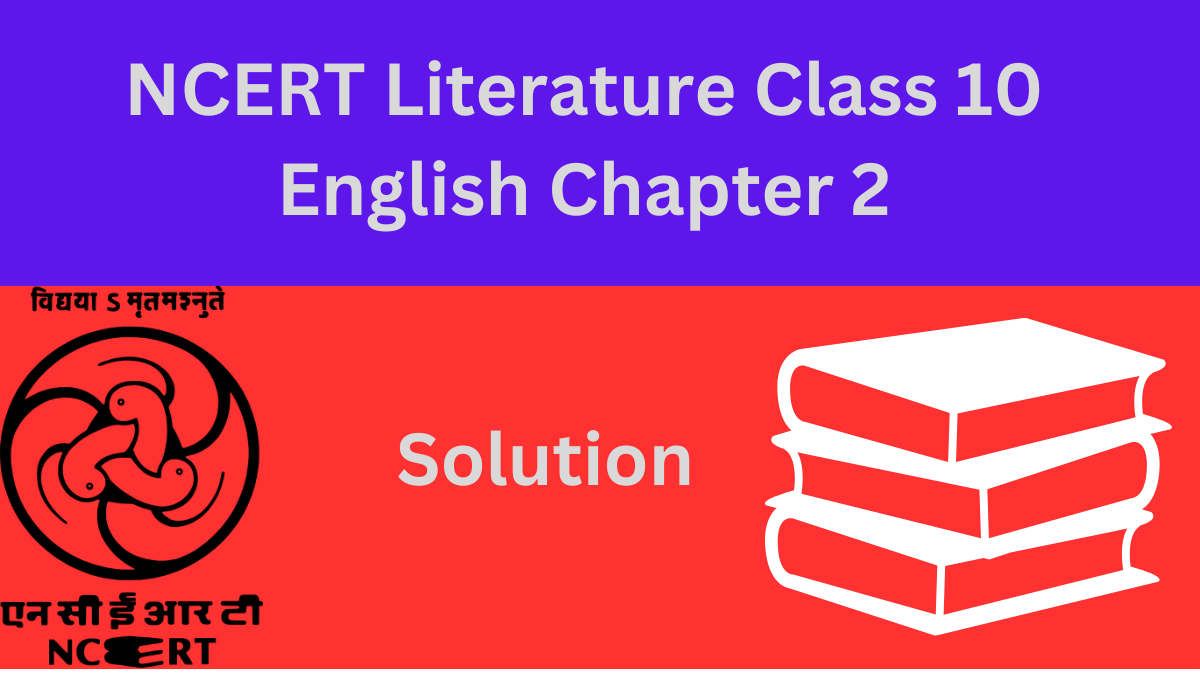Detailed Question & Answer Guide Are you a Class 10 student who needs direct answers for NCERT English Chapter 2? In that case, you are at the right website! All the solutions provided comprehensively target the aims of the chapter and explaining each’s purpose enabling you to do better in your revision and upcoming examinations.
Chapter Overview
Before attempting the solutions let’s go through Chapter 2 of the NCERT Class 10 English book. This chapter conveys significant things to be learned about life and also focuses upon concepts such as hard work, and living with integrity, and not relying on others. Setting the context for the chapter will make it easier to attempt the questions.
Thinking about the Text (NCERT Questions)
Question 1: Where did the ceremonies take place? What is the site of other sandstone buildings in India?
Answer: – The ceremonies were held at the Union Buildings amphitheater in Pretoria in the Republic of South Africa.
Other public sandstone structures in India are:
- Rashtrapati Bhavan (New Delhi)
- Parliament House (New Delhi)
- India Gate (New Delhi)
- Red Fort (Delhi).
Question 2: Could you explain why 10 May is referred to as an ‘autumn day’ in South Africa?
Answer: -10 May is referred to as an autumn day in South Africa because the country is in the southern hemisphere where May marks the autumn season. It also symbolizes the autumn of oppression as well as the blossoming of a democratic spring for the country.
Question 3: In the beginning of the address, Mandela says ‘an extraordinary human disaster’. What does this mean? At the end, he refers to a “glorious human achievement” What is this?
Answer:
- Term “an extraordinary human disaster” is used in the context of apartheid system which barbarically repressed black South Africans for many decades.
- Term “glorious human achievement” illustrates the essence of a country that has fully realized the idea of non-racial democracy, where all racial groups live and enjoy equal rights.
Question 4 – For what reasons does Mandela express gratitude towards the international leaders?
Answer: -Mandela extends his appreciation to the international leaders for being present at the inauguration ceremony and for participating in the struggle against apartheid. Their presence represented international support and acknowledgement of the transition of South Africa into a democratic nation.
Question 5: What ideals does Mandela outline that would be expected in the future of South Africa?
Answer: -Mandela outlines the ideals of equality, liberty, and justice for the entire nation of South Africans. He envisions a time when there’s no oppression of any kind and that all individuals would have the privilege of living with dignity and freedom.
Thinking about the Language
Question 1: Why was it important for so many world leaders to participate in the event? What was the victory over in that case?
Answer: -Several foreign dignitaries came for the occasion of the Mandela inauguration reinforcing the end of the apartheid era and the onset of the South African democracy. Their presence was a victory over discrimination and equality, justice, and the cause of any oppression.
Question 2: How does Mandela define courage?
Answer: -For Mandela, courage is not simply being free from all fears; it is a notion of being able to withstand fears. He absorbed that being a brave individual is not about none feeling fear in the first instance, but about how one overcomes their fear for utmost important matters.
Question 3: – Which emotion does he consider to be more innate, love or hatred?
Answer: – Mandela sees hatred as a conflict of the irrational kind. Nobody is born with hate in their hearts, and if people are taught how to hate, they can also be taught how to love because love is more innate to humanity.
Extract Based Questions:
Question: – I have the right to be free. That is the only thing that I always wanted to be free. Such words are uttered by children or individuals from societies that are virtually free. I do not remember the day I even asked for that. My mother was going to die that day, and I was sad. Me, sad? I shabbily understood one thing. I was not deprived of freedom. In all the ways I could imagine and practice. I was free to play in the pastures close to my mother’s house. I was free to wade my way into the cool river waters.”
(a) By being born free how does Nelson Mandela describe it when he says that he was free at birth?
(b) As Mandela matured, how did he view and interpret the concept of freedom?
Answer: -(a) Nelson Mandela as a child grew up in a village community so by being born free, he alludes to the freedom and lack of limitations that he enjoyed as a child.
(b) This diabolical understanding of freedom was not unconditional though outside the terrorist apartheid regime, true freedom which entailed dignity to every man, justice and equality was nonexistent.
Additional Important Questions
Question 1: -How important is Mandela’s speech to the history and the culture of South Africa?
Answer: -It is because Mandela’s speech can be referred to as a turning point in the history of South Africa as it was on his speech when the country fully devotes to building a multi racial governing system. It encompasses principles of forgiveness, Chancellor and future unity.
Question 2: -What do you think is the most important lesson from Mandela’s life that inspires you?
Answer:-From the life of Mandela, one of the lessons we can adopt in our lives is not to lose hope, be forgiving, and have invincible resolve, the resolve to stand for one’s people and in the face of injustice. For those people who have suffered oppression, to overcome and forgive is always an unachievable quest.

